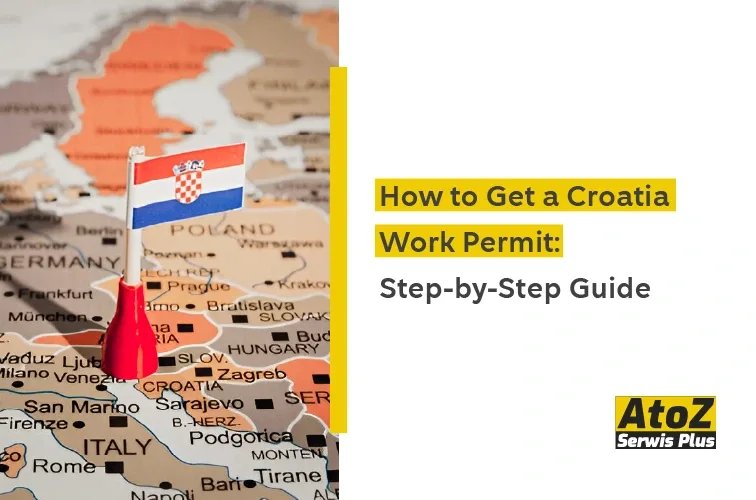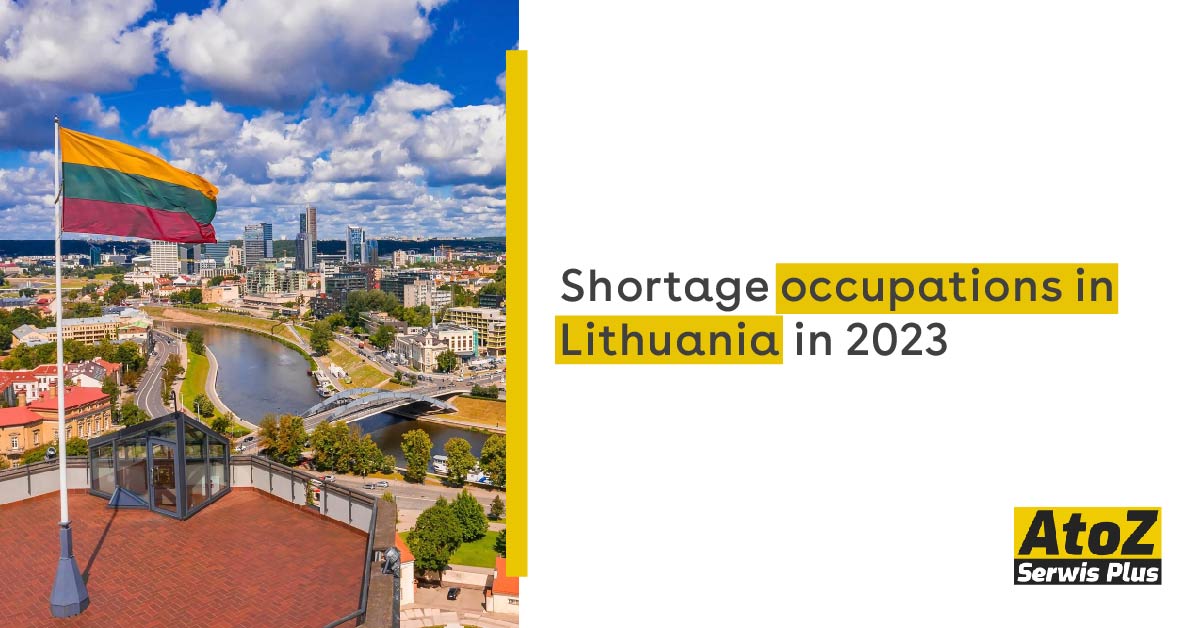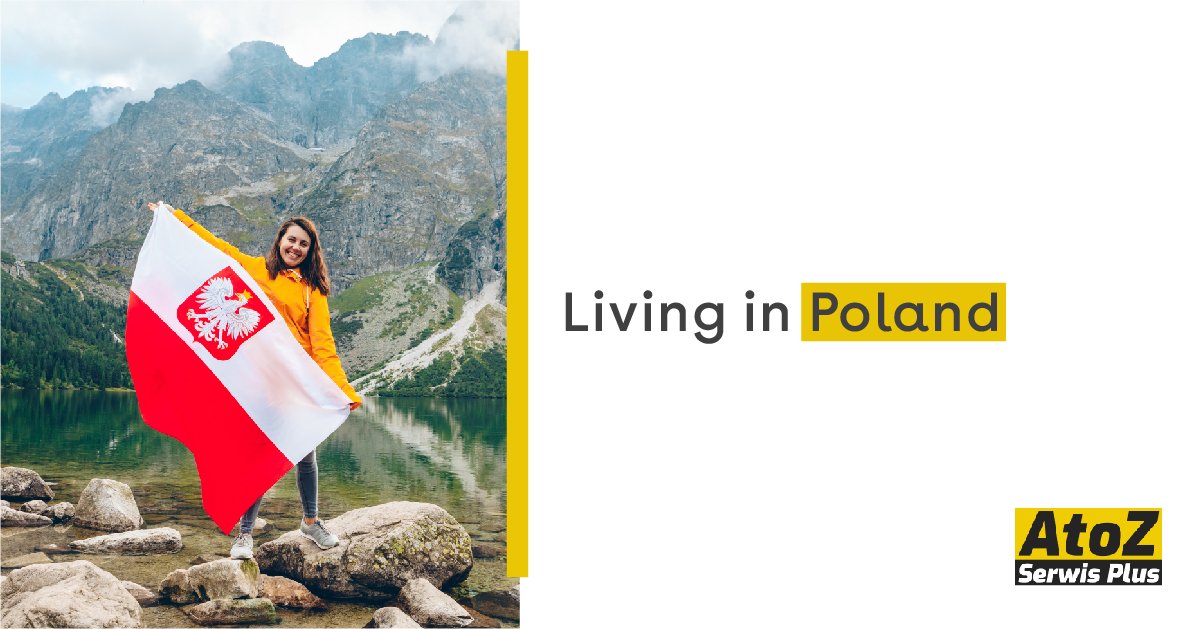

How to Get a Croatia Work Permit: Step-by-Step Guide
Are you dreaming of working in Croatia's stunning coastal cities or vibrant inland towns? The allure of this Mediterranean gem is undeniable, but securing a work permit can seem daunting. Don't let bureaucracy stand in the way of your Croatian adventure!
Navigating the complexities of international work permits can be overwhelming, leaving many potential expats feeling lost and frustrated. But fear not! Whether you're eyeing a position in Zagreb's bustling tech scene or hoping to join the tourism industry along the Dalmatian coast, this comprehensive guide will be your roadmap to success.
From understanding Croatia's unique work permit system to gathering the proper documents and finding your dream job, we'll walk you through every step. We'll also delve into the residency requirements, labour laws, and common challenges you might face. So, are you ready to turn your Croatian work dreams into reality? Let's dive in and explore how to secure your Croatian work permit step by step!
Understanding Croatia's Work Permit System
Types of work permits available
Croatia offers various kinds of work permits for foreign nationals:
-
Annual Work Permit
-
Seasonal Work Permit
-
EU Blue Card
-
Intra-company Transfer Permit
|
Permit Type |
Duration |
Purpose |
|---|---|---|
|
Annual Work Permit |
Up to 1 year |
General employment |
|
Seasonal Work Permit |
Up to 6 months |
Temporary seasonal work |
|
EU Blue Card |
Up to 2 years |
Highly skilled professionals |
|
Intra-company Transfer |
Up to 3 years |
Transfers within a company |
Eligibility criteria for foreign workers
To be eligible for a work permit in Croatia, foreign workers must meet certain criteria:
-
Have a valid job offer from a Croatian employer
-
Possess the necessary qualifications and skills for the job
-
Meet health and criminal background check requirements
-
Have sufficient funds to support themselves
-
Obtain appropriate health insurance coverage
Duration and renewal options
Work permits in Croatia typically have the following durations and renewal options:
-
Annual Work Permit: Valid for up to one year, renewable
-
Seasonal Work Permit: Valid for up to six months, non-renewable within the same year
-
EU Blue Card: Valid for up to two years, renewable
-
Intra-company Transfer Permit: Valid for up to three years, may be extended in certain cases
Renewals should be initiated at least 60 days before the current permit expires. The renewal process often requires demonstrating continued employment and compliance with Croatian labor laws.
Now that we've covered the basics of Croatia's work permit system, let's move on to the essential documents you'll need to gather for your application.
Gathering Required Documents
A. Passport and identification requirements
To obtain a Croatia work permit, you'll need to provide a valid passport with at least six months of validity beyond your intended stay. Additionally, you'll need to submit:
-
Two recent passport-sized photographs
-
A completed visa application form
-
A copy of your birth certificate
B. Educational and professional qualifications
Gather the following documents to demonstrate your qualifications:
-
Original diplomas and certificates
-
Translated and notarized copies of your educational documents
-
Professional certifications relevant to your field
-
Resume or CV highlighting your work experience
C. Proof of employment or job offer
You must provide evidence of a job offer or employment contract from a Croatian employer. This should include:
-
Official job offer letter on company letterhead
-
Signed employment contract detailing your position and salary
-
Company registration documents
D. Health insurance documentation
Secure comprehensive health insurance coverage and prepare:
-
Proof of health insurance valid in Croatia
-
Coverage details and policy number
-
Contact information for your insurance provider
E. Criminal record check
Obtain a clean criminal record certificate from your home country and any country you've resided in for more than 12 months in the past 5 years. Ensure the certificate is:
-
Issued within the last 6 months
-
Translated into Croatian (if not in English)
-
Apostilled or legalized for use in Croatia
|
Document Type |
Validity |
Additional Requirements |
|---|---|---|
|
Passport |
6+ months beyond stay |
N/A |
|
Criminal Record |
6 months |
Translation, Apostille |
|
Health Insurance |
Duration of stay |
Coverage in Croatia |
|
Job Offer |
N/A |
Company letterhead |
|
Educational Docs |
N/A |
Notarized translations |
Now that you have gathered all the necessary documents, you're ready to move on to the next crucial step: finding a job in Croatia.
Finding a Job in Croatia
A. Popular industries for foreign workers
Croatia's economy offers diverse opportunities for foreign workers across several thriving sectors. Here are some of the most popular industries:
-
Tourism and Hospitality
-
Information Technology
-
Manufacturing
-
Renewable Energy
-
Agriculture and Food Processing
|
Industry |
Key Attractions |
|---|---|
|
Tourism |
Seasonal work, language skills valued |
|
IT |
Growing tech scene, competitive salaries |
|
Manufacturing |
Skilled labor needs, export-oriented |
|
Renewable Energy |
Government support, sustainable jobs |
|
Agriculture |
Seasonal opportunities, rural development |
B. Job search strategies and resources
To find employment in Croatia, consider these effective strategies:
-
Utilize online job portals like MojPosao and Posao.hr
-
Register with local recruitment agencies
-
Check company websites for direct applications
-
Follow Croatian business news for emerging opportunities
-
Use LinkedIn to connect with Croatian professionals and companies
C. Networking opportunities
Networking is crucial for job seekers in Croatia. Here are some ways to expand your professional network:
-
Attend industry conferences and trade shows
-
Join professional associations related to your field
-
Participate in expat community events
-
Engage in local business meetups and workshops
-
Volunteer for organizations aligned with your career interests
Building a strong network can lead to hidden job opportunities and valuable insights into the Croatian job market. Remember to maintain these connections and reciprocate when possible.
Applying for a Work Permit
A. Submitting application to the Croatian Ministry of Interior
To apply for a work permit in Croatia, you must submit your application to the Croatian Ministry of Interior. This can be done either in person at the local police station or online through the official e-Croatia portal. Ensure all required documents are properly filled out and translated into Croatian if necessary.
B. Paying necessary fees
The fees for a Croatian work permit vary depending on the type and duration of the permit. Here's a breakdown of the typical costs:
|
Permit Type |
Duration |
Fee (in HRK) |
|---|---|---|
|
Short-term |
Up to 90 days |
660 |
|
Long-term |
1 year |
870 |
|
Long-term |
2 years |
1,100 |
Fees can be paid online or at the bank using the provided payment slip.
C. Biometric data collection process
After submitting your application, you'll need to provide biometric data:
-
Fingerprints
-
Digital photograph
-
Signature
This process is typically completed at the local police station or designated biometric collection center.
D. Processing times and status checks
The processing time for a Croatian work permit generally takes:
-
30 days for short-term permits
-
60 days for long-term permits
You can check your application status online through the e-Croatia portal or by contacting the Ministry of Interior directly. Keep your application number handy for quick reference.
Now that you understand the application process, let's explore the next crucial step: navigating the residency process in Croatia.
Navigating the Residency Process
Temporary residence permit requirements
To obtain a temporary residence permit in Croatia, you'll need to meet specific criteria. Here's a list of essential requirements:
-
Valid passport
-
Proof of sufficient funds
-
Health insurance coverage
-
Proof of accommodation in Croatia
-
Work contract or proof of employment
-
Clean criminal record
It's crucial to prepare these documents in advance to streamline your application process.
Registering your address
Once you've secured accommodation, you must register your address with the local authorities. This step is vital for your residency status. Here's a quick guide:
-
Gather necessary documents (lease agreement, passport)
-
Visit the local police station
-
Complete the registration form
-
Provide proof of address
-
Receive your registration certificate
Obtaining an OIB (personal identification number)
An OIB is essential for various administrative tasks in Croatia. Here's a comparison of the two methods to obtain your OIB:
|
Method |
Pros |
Cons |
|---|---|---|
|
In-person |
Immediate issuance |
Requires physical presence |
|
Online |
Convenient |
Longer processing time |
To apply, you'll need your passport and proof of residence. The OIB is crucial for opening bank accounts, accessing healthcare, and paying taxes.
With your temporary residence permit, registered address, and OIB, you'll be well-positioned to start your new life in Croatia. These steps form the foundation of your legal stay and enable you to fully integrate into Croatian society.
Meeting Croatian Labor Laws
A. Understanding employment contracts
Employment contracts in Croatia are crucial for both employers and employees. These legally binding agreements outline the terms and conditions of employment, ensuring clarity and protecting the rights of all parties involved.
Key components of Croatian employment contracts include:
-
Job title and description
-
Start date and duration (if temporary)
-
Probation period (if applicable)
-
Salary and payment schedule
-
Working hours and overtime regulations
-
Leave entitlements
-
Notice period for termination
It's important to note that Croatian law requires employment contracts to be in writing and signed by both parties.
|
Contract Type |
Description |
Typical Duration |
|---|---|---|
|
Fixed-term |
Limited duration |
Up to 3 years |
|
Indefinite |
No specified end date |
Ongoing |
|
Part-time |
Fewer than full-time hours |
Varies |
|
Seasonal |
For specific periods |
Based on season |
B. Working hours and leave entitlements
Croatian labor laws stipulate specific regulations regarding working hours and leave entitlements to ensure fair treatment of employees.
Standard working hours:
-
40 hours per week
-
8 hours per day
-
Overtime limited to 10 hours per week
Leave entitlements:
-
Annual leave: Minimum 4 weeks per year
-
Public holidays: 14 days annually
-
Maternity leave: 98 days, starting 28 days before due date
-
Paternity leave: 10 days within first 6 months of child's birth
C. Taxation and social security obligations
Understanding taxation and social security obligations is essential for both employers and employees in Croatia. The Croatian tax system operates on a progressive scale, with rates varying based on income levels.
Social security contributions are mandatory and shared between employers and employees:
|
Contribution Type |
Employee Share |
Employer Share |
|---|---|---|
|
Pension Insurance |
20% |
0% |
|
Health Insurance |
16.5% |
0% |
|
Unemployment Insurance |
0% |
1.7% |
It's crucial to stay informed about these obligations to ensure compliance with Croatian labor laws and maintain a positive working relationship.
Overcoming Common Challenges
A. Language barriers and cultural differences
Navigating language barriers and cultural differences can be challenging when working in Croatia. To overcome these obstacles:
-
Learn basic Croatian phrases for everyday interactions
-
Enroll in language classes or use language learning apps
-
Familiarize yourself with Croatian customs and etiquette
Here's a quick guide to essential Croatian phrases:
|
English |
Croatian |
|---|---|
|
Hello |
Bok |
|
Thank you |
Hvala |
|
Please |
Molim |
|
Excuse me |
Oprostite |
B. Housing and accommodation tips
Finding suitable housing in Croatia can be daunting. Consider these tips:
-
Research different neighborhoods before committing
-
Use reputable real estate websites or agencies
-
Understand the rental agreement terms thoroughly
-
Be prepared for a security deposit, usually 1-2 months' rent
C. Healthcare system navigation
Croatia has a public healthcare system, but navigating it can be complex:
-
Register with the Croatian Health Insurance Fund (HZZO)
-
Choose a primary care physician
-
Familiarize yourself with emergency services and procedures
-
Consider supplementary private health insurance for additional coverage
D. Opening a bank account
To open a bank account in Croatia:
-
Choose a bank that caters to expatriates
-
Gather necessary documents (passport, OIB number, work permit)
-
Schedule an appointment with the bank
-
Be prepared to provide proof of address and employment
Remember, patience is key when dealing with bureaucratic processes in a new country. Don't hesitate to seek help from colleagues or expat communities when facing challenges.
How to Get a Croatia Work Permit: Top 20 FAQs
-
What is a Croatia work permit?
A Croatia work permit is a legal document that allows non-EU citizens to work in Croatia for a specific employer and job role. -
Who needs a work permit to work in Croatia?
Non-EU/EEA nationals need a work permit to work in Croatia, while EU/EEA citizens only need to register with local authorities. -
Can I work in Croatia without a work permit?
No, non-EU citizens must have a valid work permit to work legally in Croatia. -
What are the types of work permits in Croatia?
- Work permits issued under annual quotas
- Work permits outside the quota system for specific job categories
-
What jobs are in demand in Croatia?
Jobs in construction, tourism, IT, healthcare, and skilled trades are in high demand. -
What are the eligibility criteria for a Croatia work permit?
- Valid job offer from a Croatian employer
- Relevant qualifications and skills
- Clean criminal record
- Health insurance
-
What documents are required for a Croatia work permit?
- Passport copy
- Job contract or offer letter
- Proof of qualifications
- Medical insurance proof
- Application form
- Proof of accommodation
-
How do I apply for a Croatia work permit?
The employer usually applies on behalf of the employee at the Croatian Employment Service or local police station. -
How long does it take to get a work permit in Croatia?
Processing typically takes 4-8 weeks, depending on the application and workload. -
How much does a Croatia work permit cost?
The fees vary but generally range between €50 and €100, depending on the type of permit and duration. -
Can I apply for a work permit while in Croatia on a tourist visa?
No, you must apply for a work permit from your home country or legal residence. -
What is the validity period of a Croatia work permit?
It is usually issued for the duration of the employment contract, up to one year, with the possibility of renewal. -
Can I change employers on a Croatia work permit?
No, work permits are employer-specific. You must apply for a new permit if you change employers. -
Is there a language requirement for a Croatia work permit?
While there is no formal language requirement, knowledge of Croatian can be beneficial, especially for certain roles. -
Can family members accompany me on a Croatia work permit?
Yes, you can apply for family reunification, but specific rules and conditions apply. -
Are work permits in Croatia issued under a quota system?
Yes, work permits are issued under an annual quota system for certain sectors and job types. -
What happens if my Croatia work permit is denied?
You can appeal the decision or reapply with corrected documentation. -
Can I work part-time on a Croatia work permit?
It depends on your contract, but permits are generally tied to full-time employment. -
Does a Croatia work permit lead to permanent residency?
Yes, after five years of continuous residence with a valid permit, you may apply for permanent residency. -
Can I renew my Croatia work permit?
Yes, you can renew it as long as you meet the eligibility criteria and have a valid employment contract.
Conclusion
Obtaining a work permit in Croatia involves several crucial steps, from understanding the permit system to navigating residency requirements and labor laws. By gathering the necessary documents, securing employment, and following the application process diligently, you can increase your chances of success. Remember to stay informed about Croatian labor laws and be prepared to overcome common challenges that may arise during the process.
As you embark on your journey to work in Croatia, patience and thorough preparation will be your greatest allies. With its rich culture, stunning landscapes, and growing economy, Croatia offers exciting opportunities for international professionals. By following this step-by-step guide and staying committed to your goal, you'll be well on your way to starting a rewarding career in this beautiful Mediterranean country.


















